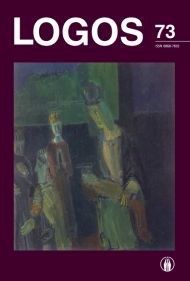Tuštumos Samprata Konfucianizmo Mąstymo Tradicijoje
Concept of Emptiness in Confucian Philosophical Tradition
Author(s): Agnieška JuzefovičSubject(s): East Asian Philosophy, Philosophy of Mind, Cognitive Psychology, Phenomenology
Published by: Visuomeninė organizacija »LOGOS«
Keywords: Confucianism; Taoism; Buddhism; phenomenology; empty consciousness; vital energy;
Summary/Abstract: This paper analyzes the Confucian concept of emptiness. The author shows that while Confucian authors showed less attention toward topic of emptiness than for example adepts of Daoism and Chan Buddhism, this problem for Confucians was not completely unknown. Confucianism and Daoism appeared approximately at the same time and in a quite similar cultural context. Therefore, the author looks for mutual influences in their interpretation of emptiness. The main attention is focused toward those Confucian authors who turned emptiness into one of the central philosophical concepts. While analyzing the attitude of Xunzi towards empty consciousness, the author highlights the main point of his empty heart-mind concept. The concept of Xunzi of consciousness as empty and therefore open and undefined is compared with analogues from Buddhism, Daoism and Western phenomenological tradition. Analyzis of Zhangzai’s conception of Great Emptiness (Taixu)as a substance which gives shape to all things in Universe shows that for this philosopher emptiness is associated not with void but with potential, vital energy (Qi).
Journal: LOGOS - A Journal of Religion, Philosophy, Comparative Cultural Studies and Art
- Issue Year: 2012
- Issue No: 73
- Page Range: 57-63
- Page Count: 7
- Language: Lithuanian

